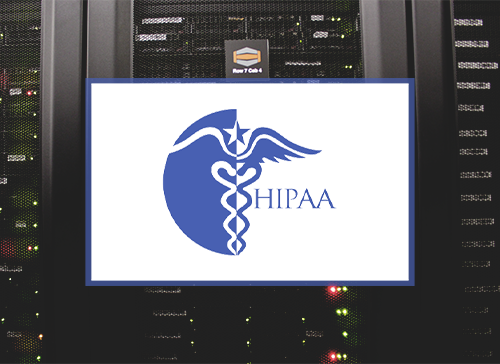
It has become a necessity for healthcare providers to move their infrastructure and outsource it to a HIPAA compliant data center. A large reason for this on-prem exodus is the risk of a HIPAA violation, which carries a maximum penalty of $50,000 per violation and even possible jail time.
When considering a move like this, healthcare providers must be confident they are getting:
- increased patient data protection
- improved telehealth capabilities
- significant cost savings
All three are achieved when moving operations to a properly designed hybrid cloud data center solution. Let’s take a closer look at each benefit.
Increased Patient Data Protection
The healthcare industry spends close to $3 trillion per year on IT infrastructure. A large chunk of this change goes to processing and storing an incredible amount of sensitive personal data. It’s estimated that 36% of all reported industrial data breaches took place in the health care industry.
It’s up to healthcare providers and payers to process, store, and transmit protected health information (PHI) under the U.S. Health Insurance Portability and Accountability Act of 1996 (HIPAA).
These HIPAA rules apply to Covered Entities and Business Associates. Covered Entities are the healthcare providers; Business Associates are those who have access to PHI. Data center providers are classified as Business Associates and must enter into a Business Associate Agreement (BAA) with a HIPAA covered entity. The BAA states the responsibilities of the Business Associate and makes them liable legally for any HIPAA violations.
A common example of a HIPAA violation is unauthorized disclosure or access of PHI. Noncompliance penalties carry a maximum penalty of $1.5 million per year for violations. It’s crucial that the data center that stores PHI comply with HIPAA requirements and be a HIPAA Business Associate.
Improved Telehealth Capabilities
The pandemic sped up the demand and value of teleheath, which is the process of telecommunications to remotely pair doctors with their clients through video conference software and VPNs.
Even before the pandemic, telehealth was on the rise, with patient adoption at the beginning of 2020 up 33% over the previous year. Healthcare IT News reports that a Manhattan medical center saw a 683% increase in virtual urgent care visits and a 4,345% increase in non-urgent virtual care visits in Q1 2020. Likewise, the Nationwide Children’s Hospital in Colombus, Ohio had a total of just 19 virtual visits in 2019; they hit 45,000 visits in a 3 month period in 2020.
It appears telehealth is here to stay, as 83% of patients polled in a recent Doctor.com survey say they expect to use this technology even after the pandemic is over.
A healthcare organization’s technology must be up to the task of supporting these systems, especially with the onset of patient monitoring technologies, the IoT, and 5G all playing a role in modern healthcare.
Medical centers with outdated infrastructure will be left behind. At the very least, they will likely need to add Uninterruptible Power Supplies (UPS) to their systems, and more likely, many will require large infrastructure upgrades and hardware to sustain the large bandwidth and data volume that is to follow with all these new telehealth advances.
Reduced Healthcare Costs
The resources required to set up and maintain an on-premises data center are considerable, so it is no surprise that most healthcare providers are turning to a combination of cloud and third-party HIPAA data centers to cut costs. It is much easier to lease space from a data center than it is to attempt to own and operate your own facility.
Efficiency and scalability are additional aspects for consideration. To ensure everything hosted on-prem is running optimally, a hospital must allocate more storage capacity than is required. This means buying additional equipment, physical server space, and IT personnel to manage it. The costs of scaling can add up in a hurry; moving to the cloud with its’ on-demand scalability reduces both the total cost of ownership and eliminates any wasted resources.
Healthcare providers adopting a hybrid approach of both cloud and data center infrastructure experience the benefits of scalability, flexibility, availability, and savings.
HostDime’s HIPAA Complaint Data Center
It is important to choose a HIPAA compliant data center that has the necessary bandwidth and redundancy so your sensitive data is always available on-demand.
Use HostDime’s Orlando data center infrastructure to process, maintain, and store PHI in compliance with HIPAA provisions.
We provide a written BAA to Covered Entities and are happy to assist in making any technical changes necessary as suggested by your HIPAA compliance auditor.
Lastly, we help many large enterprises craft a hybrid solution of cloud and colocation to meet their needs and save them money. Open a ticket with our local sales team to create your own customizable hybrid cloud set-up and ensure you grow alongside whatever telehealth advances come our way.
